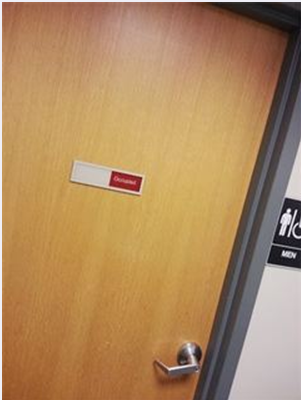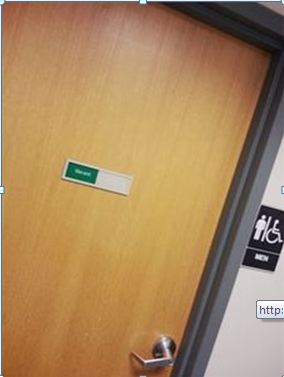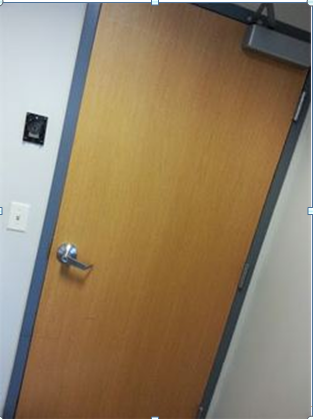ADHD and Prospective Memory (“Remembering to remember”)
Thoughtless?
An adult with ADHD tells me that he sometimes runs into challenges with his wife and other important people in his life because of what others interpret as “thoughtless” behavior. He explains that he will verbally agree to do something or be somewhere by an agreed-upon time. And he will mean it. His heart is in it, he fully intends to stick with these commitments.
But he says that the red hot second that he has moved on to the next conversation or task, it’s like the commitment never happened. Like the conversation had disappeared! Then when – yet again – it is revealed that he’s forgotten this important agreement, others tend to form their own impressions and opinions. “You didn’t care enough to follow through,” or “You don’t value our agreements.”
Prospective Memory
But it isn’t for lack of caring or failure to value agreements. He really does value those things. Folks who study cognition would call this a problem with “prospective memory,” or “remembering to remember.” Here’s a quick overview of some interesting brain research and a summary of what we’re learning about prospective memory.
Occupied
In one of the hospitals where I provide consultations, someone came up with a great strategy for managing the “occupied or vacant?” bathroom problem. Well… it seems like a great strategy until you actually use it.
It works like this: As you enter the bathroom you slide the sign to announce that the bathroom is occupied.
And then, upon exiting we are supposed to slide the sign back so that it reads “vacant” on a green background.
Sounds good, right? You always know whether the bathroom is free or not.
But in reality, the bathroom signs all over the hospital read “occupied” about 90% of the time. So we still end up knocking and waiting and listening for a response.
The problem is this – on entering the bathroom you slide the sign, step inside, and lock the door. And you fully intend to slide the sign back to “vacant” once you exit. Really, you fully understand the value of this system and you mean to follow the rules.
But once you’re inside the bathroom, you begin to think about your schedule and your post-work routine. And then you remember an email you need to shoot out right when you return to your desk. Also, next Tuesday is your sister’s birthday and you need to pick up a card sometime today or tomorrow.
And inside the bathroom, the door looks like this:
Yep. Total blank. Tan wood-grain industrial type door. Neutral walls and little weird thermostat thingy above the light switch. And none of this reminds me “don’t forget the social agreement you made with others here in the hospital…be sure to slide the sign back as you exit.”
And as you wash up and toss the paper towel and pull the door towards you, you’re off to take care of that email or whatever’s next on your schedule.
Nothing about this set-up cues me to slide that sign. It’s a purely mental agreement and I really really didn’t forget to slide the sign because I’m thoughtless or selfish. And neither did the other 90% of hospital staff who also seem to have difficulty with this particular example of prospective memory.
Remembering to remember
“I need to remember to drop these off at the post office today.” “Next time I pass by a hardware store I need to pick up some washers for the swing set.”
Prospective memory – holding a behavioral intention in mind for later execution – is really difficult and particularly so for the adolescent or adult with ADD/ADHD. And when your loved one with executive and attentional challenges “forgets to remember,” there may be a specific brain-based understanding of this forgetting rather than a characterological (“lazy”) or interpersonal (“you don’t care!”) explanation.
Solutions?
So can you think of a better way to get hospital staff to slide that little “vacant” sign back after using the bathroom? If “remembering to remember” is not working, can you identify some external reminders or strategies?
And in your day to day activities, where are you forgetting to remember? What strategies could you start to use today to support this key (and difficult!) executive function?
 ADHD and Prospective Memory was written by ADHD Specialist David D. Nowell, Ph.D. — Dr. Nowell’s expertise and experience enables him to offer unique programs that help to solve real problems that are not of a clinical nature. His EnCompass one-on-one workshop can help get your life back on course. Dr. Nowell’s Adult ADHD Weekend Retreats are designed for those who are impacted in any way by ADHD. The goal of the reatreat is to empower participants to discover how they can actually live the life that, for them, might be just a dream. In his Deep Happiness by Design workshop, which Dr. Nowell presents at Kripalu, participants are enabled to re-discover the true happiness we have deep within — and it is something our bodies already know!
ADHD and Prospective Memory was written by ADHD Specialist David D. Nowell, Ph.D. — Dr. Nowell’s expertise and experience enables him to offer unique programs that help to solve real problems that are not of a clinical nature. His EnCompass one-on-one workshop can help get your life back on course. Dr. Nowell’s Adult ADHD Weekend Retreats are designed for those who are impacted in any way by ADHD. The goal of the reatreat is to empower participants to discover how they can actually live the life that, for them, might be just a dream. In his Deep Happiness by Design workshop, which Dr. Nowell presents at Kripalu, participants are enabled to re-discover the true happiness we have deep within — and it is something our bodies already know!








